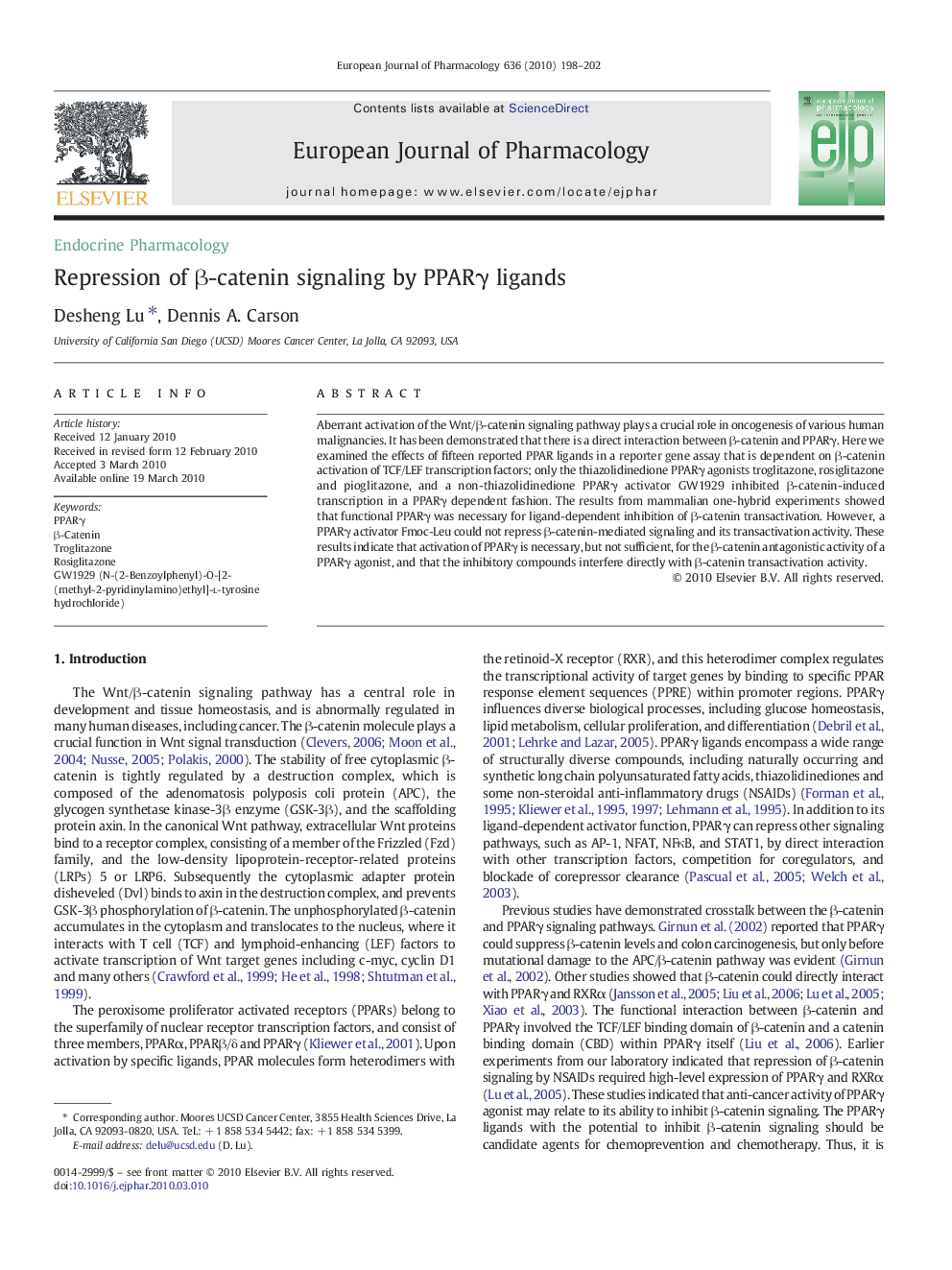| Article ID | Journal | Published Year | Pages | File Type |
|---|---|---|---|---|
| 2533523 | European Journal of Pharmacology | 2010 | 5 Pages |
Aberrant activation of the Wnt/β-catenin signaling pathway plays a crucial role in oncogenesis of various human malignancies. It has been demonstrated that there is a direct interaction between β-catenin and PPARγ. Here we examined the effects of fifteen reported PPAR ligands in a reporter gene assay that is dependent on β-catenin activation of TCF/LEF transcription factors; only the thiazolidinedione PPARγ agonists troglitazone, rosiglitazone and pioglitazone, and a non-thiazolidinedione PPARγ activator GW1929 inhibited β-catenin-induced transcription in a PPARγ dependent fashion. The results from mammalian one-hybrid experiments showed that functional PPARγ was necessary for ligand-dependent inhibition of β-catenin transactivation. However, a PPARγ activator Fmoc-Leu could not repress β-catenin-mediated signaling and its transactivation activity. These results indicate that activation of PPARγ is necessary, but not sufficient, for the β-catenin antagonistic activity of a PPARγ agonist, and that the inhibitory compounds interfere directly with β-catenin transactivation activity.
